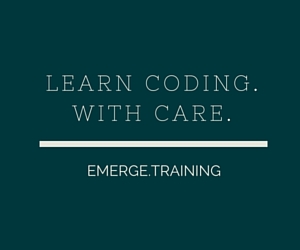The other night I noticed an intriguing blog post in my Twitter feed titled "Why founders shouldn't be the developers". In its context, this is obviously referring to founders of technology companies, and is of course so very wrong! How can you start a technology company without those who are experts in the technology? So I clicked on the link, mainly because since I absolutely do not agree with the statement, I was looking to see what it was that I was disagreeing with. I found out that while I really cannot agree with the title, the article does indeed capture very vividly the spectacularly painful life and challenges of a technical founder of a technology company. While I was reading, I was preparing to post a comment to explain my solution to the problem, but in the very end of the article, the author wrote it down himself ..
"I hear some people can be founders during the day, programmers during the night."
(A little bit extreme, I know, but like I always say .. If it was easy, everyone would be doing it)
But this was precisely the kind of thing that I was supposed to comment. He does continue the thought though, by saying: "This leads straight to burnout and madness, you can't do it for long." While he does have a point .. And I would agree that it is indeed intensely difficult .. Maybe it's not quite like that.
When we started developing Eqela, I was in the middle of training a team of young developers, steering marketing and promotions, travelling across the world, promoting our products and company, talking to customers and potential customers, and indeed pitching it in every corner .. And trying to mentor others to be able to do the same. There was absolutely no time to do programming. Yet there would have been no point in racing across the world if there was no working product to sell! So at a point I noticed I had developed a nice little routine. From 4am to 6am I had my extremely productive, highly focused programmer time, which is also discussed in the article (I tried to consider stealing more time by pushing it towards 3:30, but I told myself that's too far .. Stop it!). From 6am to 7am I had breakfast with my son and sent him off to school, then went to the office, acted as the founder, CEO, mentor, coach, throughout the day. At times I continued with focused programming after the office had quited down. The article resonates with me very well here .. I would NEVER get a single hour of peaceful, focused work time in the office. Ever. Many times I found myself not even being able to sit at my desk before the office is empty again in the evening.
And then it all comes with the heartaches, disappointments and problems. People who try to take advantage of you, try to screw you over, or do other nasty things to you. This comes in many different shapes and sizes. So yes, I can understand why it would seem to be perfectly reasonable to say that it leads straight to "burnout and madness".
Yet I wouldn't say that.
Looking backwards (although I don't know if it's still too early to do that), it is nothing short of miraculous that the madness still hasn't caught up with me (although of course those who know me may choose to disagree). Working twenty-one hours a day, taking care of a family with children, and having some kind of a social life as well is no joke. Scientifically speaking it can not be true that there are 28 hours in a day, but the sum total of my life must have at times reached more than that nevertheless.
And how can that be? Not through my strength nor my might. I don't have any. That is why, as soon as I saw the article, I shared it in a tweet that included:
I can do all things through him who strengthens me
I do not think that it is possible for a human being to go through this kind of frenzy and evade the burnout and the madness. Yet it happens, as there continues to be technology startups in the world (and they would not be technology startups if there were no developer founders, so let's leave that in peace). It is good for us to have articles like the one I read, and I greatly appreciate reading such a lifelike description of the pain of a technology entrepreneur. But the title of the article is so wrong. Just because it is hard and painful, does not mean that it should not be done. The fact that it is impossible only means that we need to look beyond ourselves for the strength to make things work.
Therefore, in response to what I have read, and to most actively try to send a completely opposite message, I invite all able-bodied programmers to explore the option of being a founder in a technology company! Do note though that not all are meant for that. But if that is your appointed role in life, never let the fear of the impossible come in your way. There is strength that surpasses all understanding out there, if only you are doing what you are supposed to be doing, and in a way that it's supposed to be done.
May we all find and see this kind of strength, starting this Christmas. And hopefully the new year would be the start of something great for many brilliant programmers, looking to do something that was previously impossible. Be brave!



